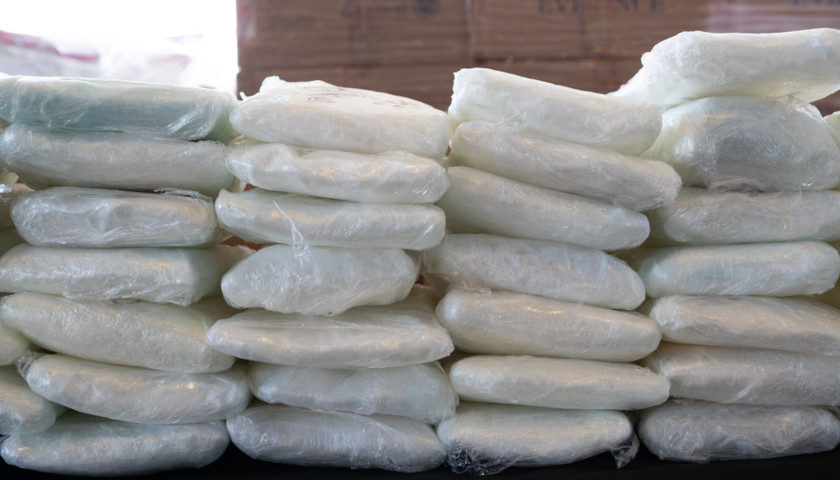by Elizabeth Troutman
Federal authorities have seized significantly more fentanyl along the U.S.-Mexican border in Arizona and California since October than they did in the entire 2020 fiscal year.
Since October, authorities have seized 7.000 pounds of the drug, compared to just 4,500 pounds in the entire last fiscal year, according to data from Customs and Boarder Protection. The reasoning, according to authorities, is simply supply and demand.
Shane Watson, public information officer and prevention specialist at notMYkid.org, attributed the increase in fentanyl findings to supply and demand.
“We already had an opioid crisis in the United States and to meet that increased demand, not only from the existing opioid crisis, but from the spike that we’ve seen in use since the pandemic started, cartels south of the border are realizing that there’s money to be made in this,” Shane Watson, public information officer and prevention specialist at notMYkid.org, told The Center Square.
He said cartels can take bulk fentanyl from China or Europe and use a pill press to make pills which resemble a variety of other drugs.
According to notMYkid.org, there were 1,752 overdose deaths in Maricopa County in 2020, with another 550 under investigation, nearly twice the number in 2019. Fentanyl is connected to many of the nearly 90,000 fatal overdoses reported across the U.S last year, according to CDC data.
Watson said the opioid is so dangerous because the lethal dosage is so small.
“The lethal dose of heroin for an average sized adult male is 30 milligrams and the lethal dose of fentanyl for an average sized adult male is two to three milligrams,” Watson said. “It’s not only stronger than heroin, but it’s 50 to 100 times stronger than morphine.”
Since October, close to 90% of the fentanyl seized at the border followed busts in Arizona and California. Customs officers at ports of entry near San Diego have seized 4,075 pounds of fentanyl since October. This accounts for 58% of all fentanyl seized at the border during that period.
In Arizona, seizures at ports of entry accounted for 1,474 pounds, or 21% of the total found along the border. Arizona is a hub for the Sinaloa cartel, Watson said, causing fentanyl from south of the border to reach it first.
Watson said that the increased unemployment rates resulting from the COVID-19 pandemic motivated more people to get involved in drug trafficking as “a matter of desperation.”
He said the fentanyl crisis in Arizona is “impacting us on a human level,” as its highly addictive nature leads to fatal overdoses. It has become so abundant that when law enforcement officials in Arizona make an arrest and seize pills, they automatically assume that the pill contains fentanyl, according to Watson.
More than 90% of those overdosing on fentanyl think they are buying something else, Watson said.
“I interviewed a mom who lost her 18-year-old son back in January to a fentanyl overdose from a counterfeit pill that he purchased on Snapchat. It’s hooking people here and it’s getting people addicted very quickly.”
NotMYkid is taking a variety of measures to fight the fentanyl crisis in the Grand Canyon State, such as youth mental health care, prevention education, early intervention, and counseling services.
“We’re getting out there in terms of awareness and in terms of support for youth and families,” Watson said.
– – –
Elizabeth Troutman is a contributor to The Center Square.








